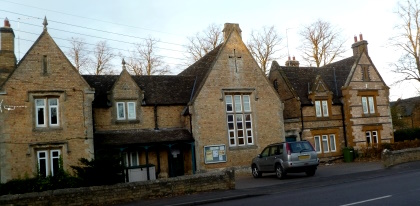
Home

The Question about the Sabbath
Mark 2.23 to Mark 3.6
Good News Translation (GNT)
*************************
23 Jesus was walking through some wheat fields
on a Sabbath. As his disciples walked along
with him, they began to pick the heads
of wheat.
24 So the Pharisees said to Jesus, "Look, it is
against our Law for your disciples to do that
on the Sabbath!"
25 Jesus answered, "Have you never read what
David did that time when he needed
something to eat? He and his men were
hungry,
26 so he went into the house of God and ate
the bread offered to God. This happened
when Abiathar was the High Priest.
According to our Law only the priests may
eat this bread - but David ate it and even gave
it to his men."
27 And Jesus concluded, "The Sabbath was
made for the good of human beings; they
were not made for the Sabbath.
28 So the Son of Man is Lord even of the
Sabbath."
The Man with a Paralyzed Hand
Mark 3
1 Then Jesus went back to the synagogue,
where there was a man who had a paralyzed
hand.
2 Some people were there who wanted to
accuse Jesus of doing wrong; so they
watched him closely to see whether he would
cure the man on the Sabbath.
3 Jesus said to the man, "Come up here to the
front."
4 Then he asked the people, "What does our
Law allow us to do on the Sabbath? To help
or to harm? To save someone's life or to
destroy it?" But they did not say a thing.
5 Jesus was angry as he looked around at them,
but at the same time he felt sorry for them,
because they were so stubborn and wrong.
Then he said to the man, "Stretch out your
hand." He stretched it out, and it became well
again.
6 So the Pharisees left the synagogue and met
at once with some members of Herod's party,
and they made plans to kill Jesus.
*************************
Commentary taken from
'The Applied New Testament Commentary'
(Kingsway)
Lord of the Sabbath
Mark 2v23 to Mark 3v6
According to Jewish law, it was legal to pluck a neighbour's harvest by hand (Deuteronomy 23:25), but it was not lawful to do so on the Sabbath.
The Pharisees called it "reaping," which was forbidden on the Sabbath (Exodus 34:21).
According to the Jews, no work of any kind could be done on the Sabbath, and the Jews considered "picking" heads of grain to be a kind of work.
The Sabbath is the seventh day of the week.
God created the universe in six days, and then rested on the seventh day (Genesis 2:1-3).
Therefore, God set apart the seventh day of the week as a special day of rest (Exodus 20:8-11).
The Jews observe the Sabbath on Saturday, and Christians observe it on Sunday.
Nowhere in the Bible does it actually say which day of the week the "seventh day" is.
Therefore, they accused Jesus' disciples of breaking the Sabbath law because, being hungry, they were picking grain.
But Jesus reminded the Jews of their own King David, who also disobeyed one of the Jewish laws.
He was hungry and so ate some special bread that only the priests were allowed to eat
(1 Samuel 21:1-6).
Ahimelech was the high priest who gave David the holy bread.
Abiathar was Ahimelech's son
(1 Samuel 22:20).
It is not certain why Mark mentions Abiathar here.
Jesus' meaning was this: God made the Sabbath law for man's benefit, not to add a burden (Exodus 20:8-11; 23:12).
If a man was hungry, he had a right to eat on the Sabbath.
Therefore, the disciples had a right to pick grain on the Sabbath to satisfy their hunger.
The Sabbath was made for man, not man for the Sabbath (verse 27).
The Sabbath was meant by God to be a day of rest and joy, not of hunger!
The rules of the Pharisees were too strict.
They had turned the Sabbath into a day of oppression.
The Son of Man - that is, Jesus (verse 10) - has final authority over the Sabbath.
He can decide what can and cannot be done on the Sabbath.
Jesus taught that works of necessity (such as satisfying hunger) and works of mercy (Mark 3:1-5) are legal on the Sabbath.
According to Matthew 12:5-7, on this same occasion Jesus also gave the example of the priests who had to work at their priestly duties in the temple on the Sabbath.
They, like King David, also "broke" the Sabbath law, but they were not considered guilty.
But now someone greater than King David had come, that is, Christ.
Not only that, but "one greater than the temple is here," said Jesus (Matthew 12:6).
When Jesus came, all of the temple rules and sacrifices became unnecessary.
Jesus was the true temple.
The Jews thought that God's presence was in the temple, but in fact, God's presence was fully in Jesus.
If priests serving in the temple could "break" the Sabbath law, then surely these disciples serving Christ could break it too, because Christ was greater than the temple.
Then in Matthew 12:7, Jesus again reminds the Pharisees of God's words: "I desire mercy, not sacrifice" (Hosea 6:6; Matthew 9:13).
In God's sight, it is more important to show mercy on the Sabbath than to follow all the customs and sacrifices of the Jews.
If the Jews had remembered these words of God, they of breaking the Sabbath law. would not have accused Jesus' disciples of breaking the Sabath law
Other versions are available here
Return to the Home Page

Contact the Rector
The Revd.
Nic.Edwards
The Rectory,
Church Lane,
BUGBROOKE,
Northampton,
NN7 3PB
Land Line: 01604 - 815496
(Can be accessed from the mobile device)
Mobile: .....
E-mail:
thebeneficeofbhkandr at gmail dot com
Contact the Benefice Office
Sunday School Rooms, Church Lane,
BUGBROOKE, Northampton, NN7 3PB
Land Line: 01604 830373
E-mail:
thebeneficeofbhkandr at gmail dot com
Mon., Tues., Wed,, Thur., Fri.
9:00am to 11:30am

For Baptism bookings (Christenings)
to arrange an appointment please contact
the Benefice Office.
For Wedding bookings:
please contact the Benefice Office to arrange
an appointment.
Who Made This?
Seeing as you asked, if you can give helpful
advice or report factual corrections and
'deliberate mistakes',email:-
regparker3 at gmail dot com
Email addresses shown using words in an
attempt to avoid 'spam',
Type the email address replacing 'at' with '@',
and 'dot' with '.'
|



